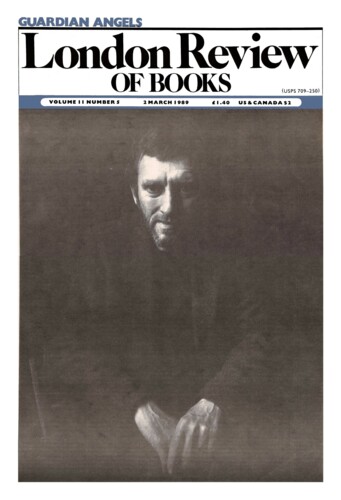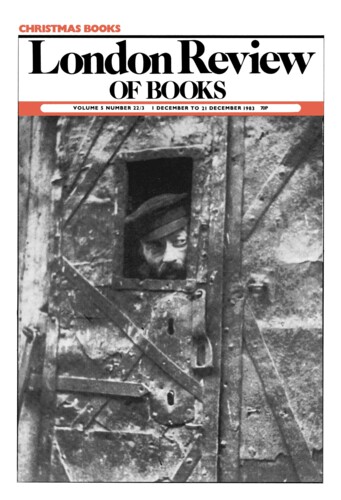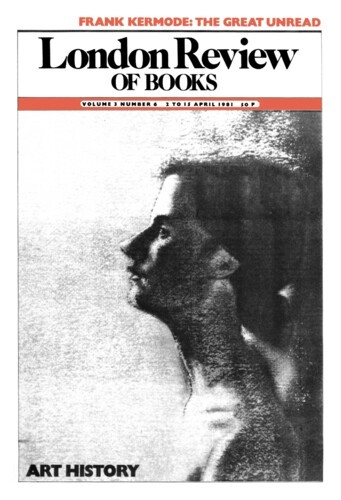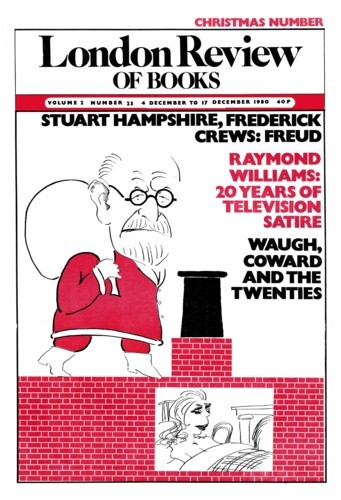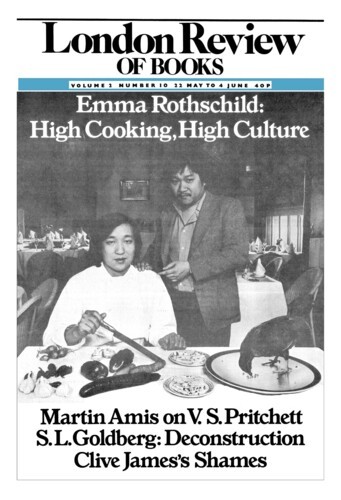Like the trees on Primrose Hill
Samuel Hynes, 2 March 1989
In ‘The Cave of Making’, his elegy for MacNeice, Auden describes his friend as a ‘lover of women and Donegal’. The geography seems a bit wrong – the Irish counties in MacNeice’s heart were surely Antrim and Galway – but the terms are apt enough for the man in the poems: a lover, certainly, and of both women and the land of his birth. A full list of his loves would have to be longer than Auden’s, though. It would go on to include many other affections that composed his life: for friends, London, rugby, drink, Classical languages, fast cars, idle talk, clichés, pubs, and not most of all, perhaps, but most of the time – poetry.’
